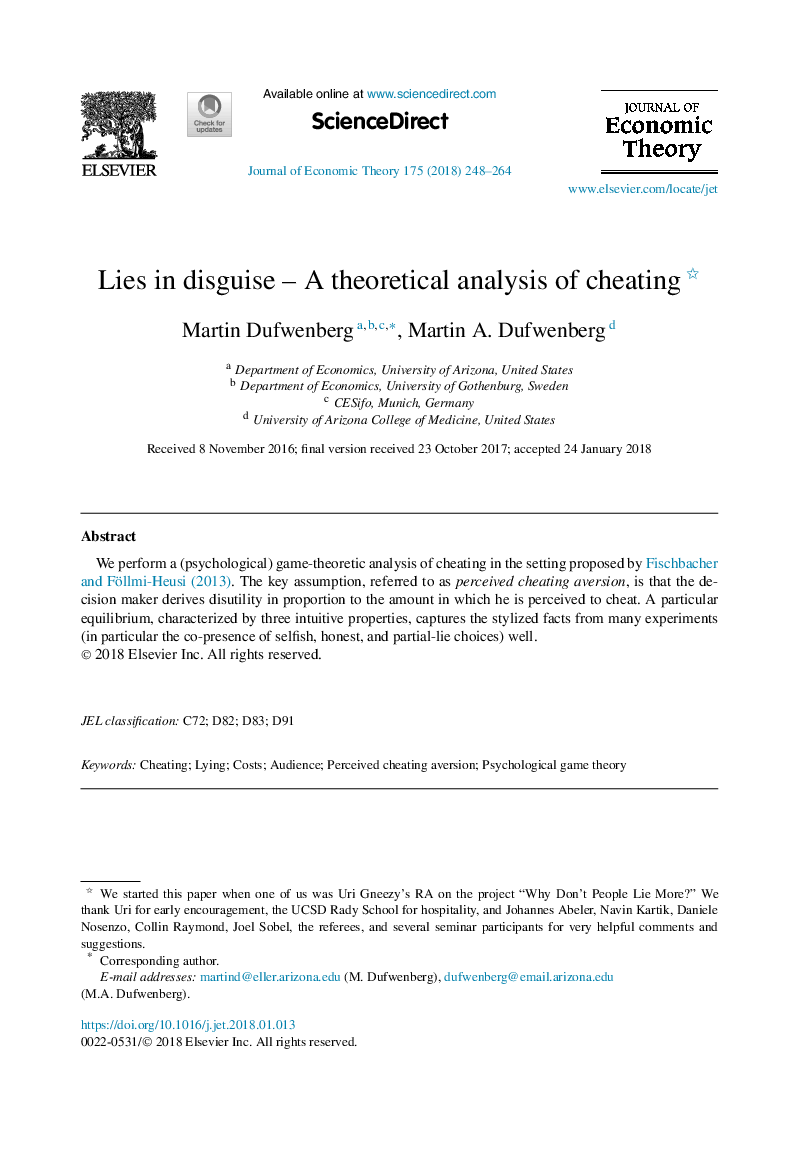| Article ID | Journal | Published Year | Pages | File Type |
|---|---|---|---|---|
| 7359189 | Journal of Economic Theory | 2018 | 17 Pages |
Abstract
We perform a (psychological) game-theoretic analysis of cheating in the setting proposed by Fischbacher and Föllmi-Heusi (2013). The key assumption, referred to as perceived cheating aversion, is that the decision maker derives disutility in proportion to the amount in which he is perceived to cheat. A particular equilibrium, characterized by three intuitive properties, captures the stylized facts from many experiments (in particular the co-presence of selfish, honest, and partial-lie choices) well.
Related Topics
Social Sciences and Humanities
Economics, Econometrics and Finance
Economics and Econometrics
Authors
Martin Dufwenberg, Martin A. Dufwenberg,
